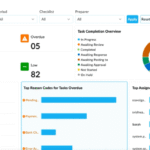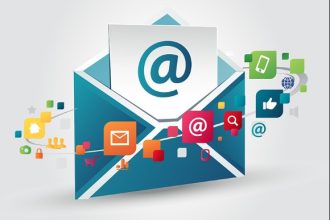Marketing is one of the most important drivers of growth for any business. It builds awareness, generates leads, and creates the customer relationships that keep companies moving forward. But with so many channels to manage — from social media and search engines to email campaigns and paid ads — business owners face a big question: should marketing be handled in-house or outsourced to an agency?
Both approaches come with their advantages and drawbacks. Understanding the difference helps companies decide which route delivers the best return on investment (ROI).
The Case for In-House Marketing
Keeping marketing in-house offers a level of control that many businesses value. With a dedicated team working within the company, it’s easier to align marketing directly with brand values and day-to-day operations. Communication is often quicker too, since campaigns are being managed by colleagues under the same roof.
In-house teams can also develop deep product knowledge. They live and breathe the brand, which helps in creating highly tailored content and messaging. For businesses with steady, predictable marketing needs, an internal department may feel like the most natural solution.
However, in-house marketing comes with limitations. Recruiting, training, and retaining skilled staff is costly. Smaller teams may struggle to cover the wide range of skills needed, from SEO and web design to paid ads and analytics. This often means campaigns lack depth in certain areas, which can hold back results.
The Case for Outsourcing
Outsourcing marketing to an agency offers access to a broad pool of expertise. Instead of relying on one or two in-house employees, businesses can tap into a full team of specialists. Agencies bring knowledge across disciplines like search optimisation, content strategy, advertising, and analytics, ensuring campaigns are well-rounded and effective.
Cost efficiency is another advantage. Rather than paying salaries, benefits, and training costs for a large in-house team, businesses pay for the specific services they need. This flexibility allows companies to scale campaigns up or down depending on goals and budget.
Agencies also bring fresh perspective. External teams can spot opportunities and weaknesses that in-house staff may overlook. They use advanced tools and keep up to date with the latest trends, helping businesses stay ahead in competitive markets.
Weighing the ROI
Return on investment is the deciding factor for most businesses. In-house marketing can work well for companies with established teams and consistent workloads, but the costs of recruitment, software, and training often limit ROI. For many, outsourcing provides greater value by delivering a wider skill set, measurable results, and reduced overheads.
Of course, the best solution sometimes lies in a hybrid model. Businesses may keep certain functions internal — such as brand messaging or social media engagement — while outsourcing more technical or labour-intensive tasks like SEO and PPC. This balance allows companies to retain brand control while still benefiting from specialist expertise.
The Role of Trusted Agencies
Outsourcing only delivers strong ROI when businesses partner with the right agency. It’s important to choose specialists who understand both the technical side of marketing and the unique goals of the business. A trusted partner doesn’t just execute campaigns — they provide strategic guidance and long-term support.
An example is clicklimits, a digital marketing agency offering services that span SEO, paid advertising, web design, and lead generation. Agencies like this help businesses optimise campaigns, cut wasted spend, and unlock consistent growth.
Final Thoughts
Deciding between in-house and outsourced marketing isn’t always straightforward. In-house teams offer control and brand familiarity, while outsourcing delivers expertise, flexibility, and cost efficiency. The choice depends on a company’s size, goals, and resources.
For many businesses, outsourcing provides the best balance of value and results. By partnering with high quality agencies, companies can gain access to specialist knowledge, advanced tools, and scalable solutions that drive stronger ROI in an increasingly competitive digital landscape.















